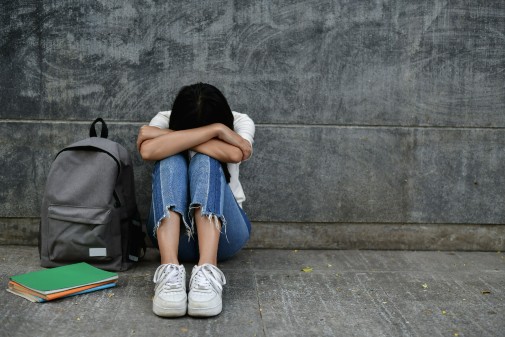Rising costs of mental healthcare in England revealed in new report
Posted on 4 November 2024

The study, conducted by the University of York with support from the Health Foundation, showed that between 2016 and 2019 total costs of secondary mental health services increased by 13%, outpacing the average inflation rate of 2.3%. The number of individuals needing to use NHS secondary mental health services also rose by 8%.
The research indicates that relative to population estimates, a disproportionate amount of young people aged between 11 and 20 are seeking these services. However, the total cost is higher for young girls aged 16-20 and working-age men, with the latter group bearing the highest treatment cost per patient.
Deprivation
Patients from England’s most deprived neighbourhoods accounted for 14% of all mental health patients, with annual costs ranging from £761 million to £840 million. In contrast, those from the least deprived areas, making up 7% of patients, incurred annual costs of between £244 million and £300 million. The North of England exhibits the highest cost per patient, whereas the South, excluding Greater London, has the lowest.
The study also found that the cost per patient for ethnic minorities consistently exceeds that for White patients with some ethnic groups having more than twice the average annual cost per patient. This is in contrast to White patients, who represent over 74% of total patients and total cost.
Driving factors
While the study did not look at the underlying reasons for these figures, related research suggests that common mental health disorders, such as anxiety and depression, along with eating disorders and self harm, are the primary factors driving the utilisation of services and costs for young girls.
Working-age men are the most costly to treat because they are more prone to serious mental illnesses such as schizophrenia, less likely to seek early treatment, and more likely to be detained under the Mental Health Act.
Although not specifically examined in this study, the steep and persistent gradients in costs for those living in the most deprived areas and ethnic minorities are likely to be closely linked, the researchers say – with individuals from ethnic minority groups also more likely to reside in the most deprived areas compared to White British counterparts.
Disproportionate Impact
Lead author of the research, Professor Rowena Jacobs from the Centre for Health Economics at the University of York, said: “Mental health problems are more likely to affect people facing discrimination, unemployment, or poverty – factors more commonly associated with minority ethnic populations and individuals in deprived areas.
“Our findings also emphasise the disproportionate impact of poor mental health on young girls and the working-age population. In addition to the cost of treatment to the NHS, this has an enormous impact on individual’s wellbeing, as well as on the economy through reduced productivity.
“Understanding the costs associated with mental health care is crucial for ensuring that resources are allocated to where they are most needed.”
The data analysed in the study came from the Mental Health Service Data Set which includes comprehensive data on spending by the 54 NHS Mental Health Trusts in England. However, as it does not include data on spending by independent sector providers, the real level of spending on mental health care is even higher.
Quality of care
The researchers will now be looking at whether the increases in costs to the NHS represent value for money and how much it would cost to improve quality of care by addressing factors such as waiting times, readmission rates, and improving continuity of care.
Dr Jacobs added: “For instance, there is a significant financial and emotional toll when patients wait a long time for their care, are discharged too soon, or get readmitted, and our next steps will include an exploration of the costs of investing more in supporting mental health teams to enhance the quality of care people receive and improve patient outcomes.”
Explore more news

Research suggests 700,000 children could be lifted out of poverty overnight by following Scotland's approach
Thursday 27 March 2025

Could a deeper understanding of the seasons and how they are changing improve resilience to climate change?
Thursday 27 March 2025

Perceived 'burden' of AI greatest threat to uptake in healthcare, study shows
Wednesday 26 March 2025

New study on medicinal plants established with York’s twin city in China
Monday 24 March 2025

Digitalising essential services risk widening inequalities for minoritised ethnic communities, research study warns
Friday 14 March 2025
Media enquiries
About this research
Costs and activity for mental health services provided by NHS mental health trusts in England: sociodemographic and regional trends is available to read in full at the following link.
